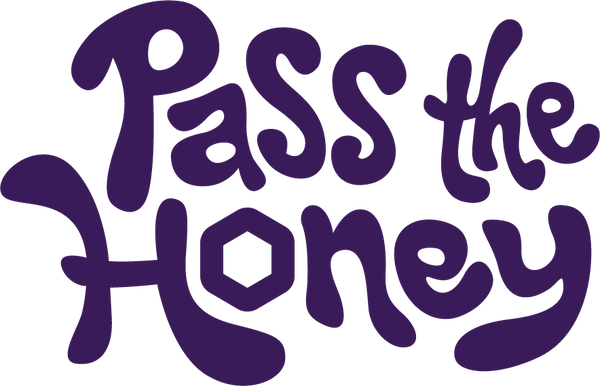One of the ways we are creating transformative change is with our partners in the Regenerative Agriculture Working Group. Pass the Honey is a founding member and current Chair of the Regenerative Agriculture Working Group.
The Regenerative Apiculture Working Group (RAWG) was formed to address the challenges beekeepers and honeybees are facing at an industry level. When we saw the magnitude of the issues the industry faces, we knew we couldn’t do the work alone. The working group’s founding aim is to establish industry-wide standards for regenerative apiculture that will support beekeeper livelihoods, honeybee health, and healthy ecosystems.
The Regenerative Apicultural Working Group is a multi-stakeholder group gathering beekeepers, landowners, researchers, honey buyers (packers, brokers, distributors, retailers, and brands), consumer educators, ecologists, and regenerative designers at a shared table for the purpose of identifying and working towards systemic solutions to the many challenges beekeepers and honeybees experience.

Our Mission is to understand and regenerate the web of relationships that make consumable honey possible so that all elements of that web increase in their capacity to support life - specifically, more honeybees, more pollinators, better livelihoods for beekeepers and honey processing groups, greater biodiversity, water sequestration, carbon sequestration, and soil health in apiary landscapes.
Our Vision is to develop a certification process that defines Regenerative Honey and verifies the practices that produce honey regeneratively are transparent to all. Certified Regenerative Honey products increase the life supporting capacity across landscapes, apiaries, honey processors, and honey based finished products, enabling end consumers to understand that by purchasing certified regenerative honey, they are helping to regenerative and positively transform their world.
Regenerative Apiculture Standards and Verification will enable:
- Beekeepers to align with a regenerative production approach, differentiate their products in the market and receive premium prices
- Beekeeping practices that support honeybee health
- The development of beekeeper and landowner partnerships that support honeybee and landscape health
- Beekeepers to report and share the impacts of their production
- Provide consumers and honey buyers with a verified regenerative, transparent alternative to the adulterated, opaque conventional honey market
The working group aims to organize the honey industry and its stakeholders around regenerative practices, focusing on standards, testing, and education, to create a value-retentive beekeeping model.
The Regenerative Apiculture Working Group focuses on the following areas:
- Develop Regenerative Apiculture concepts, definitions, and standards.
- Educate About Regenerative Apiculture
- Develop Regenerative Practices and Outcomes Manual
- Fund Applied and Interdisciplinary Research
- Strengthen Networks of Landowners, Beekeepers and Honey Buyers
- Coordinate Suppliers and Brands Leading Industry Change

Domestic Partnerships
In conjunction with our efforts in partnership with the Regenerative Apiculture Working Group, Pass the Honey has also committed 1.1 million acres to domestic research for the development of regenerative apiculture standards from landholders of managed forest areas in the US. Our landholder partners work in Oregon, Montana, New York, Pennsylvania, West Virginia, Tennessee, Alabama, Florida, Michigan, and Wisconsin.
Participating beekeepers include apiarist professionals, businesses, and networks who can assist in setting up the unique production systems for each context in a way that aligns with the land, land management strategies, and the research requirements.
This work is our phased effort to establish regenerative honeycomb and honey production on public and private lands in the United States supported by research, monitoring, and reporting to develop standards of practice, verify honeycomb quality and authenticity, document environmental impacts, and inform relevant federal policy. This effort arises out of a deep concern for the interaction and entanglements between the health of humans, pollinators, and the landscapes on which they rely.

The challenge is to discover the ways in which the individual efforts of each can be coordinated to describe a higher and shared aim that simultaneously improves the health and enhances the impact of each in their respective aims. Thus, an interdisciplinary investigation is required into the ways in which prudent stewardship of Apis mellifera - the honeybee - is definitively contingent on and has benefits for healthy soils and water quality, native pollinators and pollinator habitat, food crops and agricultural systems, and ultimately the health of humans.
Pass the Honey is directly responding to the global awareness of a need for regenerative forms of land management that support multiple yields for market while providing environmental co-benefits like protecting critical wildlife habitat and mitigating climate change. We are also addressing the United States federal government’s call for a science-based, public, and private collaboration to promote the health of honeybees and other pollinators. Our efforts will produce regenerative honeycomb for domestic markets in conjunction with research into the impacts of these practices on overall honeybee colony health, local pollinator populations and habitat integrity, and indicators of ecological integrity of the surrounding landscape like soil carbon and functional biodiversity.

